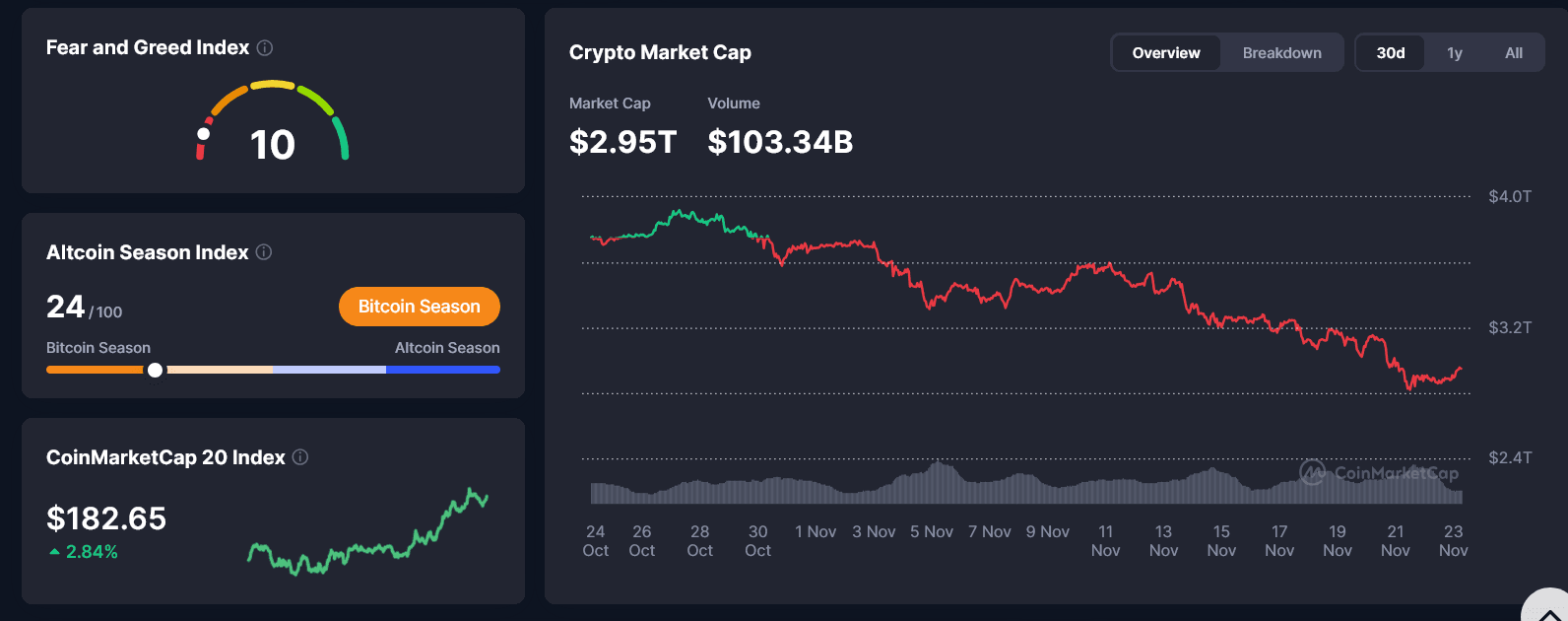ICP Caffeine AI: Is It Revolutionizing AI-Powered Finance?
- ICP's Caffeine AI aims to redefine AI-native blockchain by enabling on-chain AI execution and reducing inference costs. - ICP's price surged 30% in late 2025 due to institutional adoption, but recent volatility raises concerns about speculative trading pressures. - TVL reached $237B via Microsoft/Azure partnerships, yet dApp engagement dropped 22.4%, highlighting reliance on institutional capital over organic growth. - Regulatory scrutiny and competition from AI-native platforms pose risks, contrasting w
Market Dynamics: Growth, Stabilization, and Institutional Influence
ICP's price
The ICP Network’s Total Value Locked (TVL) hit $237 billion by the third quarter of 2025,
AI Integration: Caffeine AI and the Transformation of Financial Systems
The introduction of Caffeine AI by the DFINITY Foundation in November 2025 was a significant milestone. This AI toolkit enables users to create blockchain apps using natural language commands,
For financial use cases, Caffeine AI’s “chain-of-chains” design enables instant portfolio management and risk assessment. Its mixed-precision processing and caching features help solve issues in algorithmic trading, while decentralized AI agents operate transparently under on-chain governance.
Challenges and Risks: DApp Usage, Regulation, and Market Competition
Despite its advancements, ICP encounters significant obstacles. The
C3.ai’s recent difficulties, including leadership turnover and cash flow issues, stand in contrast to ICP’s institutional strategy. While C3.ai focuses on Microsoft Copilot and Azure for enterprise AI,
Investment Implications: Redefining Tech-Driven Finance
For those investing, ICP’s progress mirrors larger movements in the AI-blockchain space. The Ahmiane Method, a systematic way to spot “hidden champions” in AI infrastructure,
Caffeine AI’s influence on financial systems is especially noteworthy. By lowering AI inference costs and making no-code dApp creation possible, it reduces entry barriers for both developers and businesses, potentially speeding up adoption in sectors like finance and healthcare. Nonetheless, scalability challenges and regulatory ambiguity call for a prudent approach.
Conclusion: Disruptive Force or Passing Trend?
ICP Caffeine AI stands as an ambitious attempt to blend AI and blockchain, with the promise to upend conventional financial systems. Its institutional ties, cost-saving features, and practical uses in portfolio management make it a frontrunner in the AI-native asset landscape. Still, issues such as dApp participation and regulatory risks require thorough assessment. For investors, the challenge is to weigh enthusiasm for technological progress against caution over speculative excess.
As the integration of AI and blockchain gathers pace, ICP’s success in maintaining institutional backing while tackling engagement and compliance challenges will decide if it becomes a foundation of AI-powered finance or a warning for the industry’s future.
Disclaimer: The content of this article solely reflects the author's opinion and does not represent the platform in any capacity. This article is not intended to serve as a reference for making investment decisions.
You may also like
The Rapid Rise of ZK (Zero-Knowledge) Assets and Protocols: How Network Enhancements and Institutional Embrace Impact Investments
- ZK protocols saw 2025 seismic growth via network upgrades and institutional adoption, reshaping investment theses for scalable, private blockchain infrastructure. - ZKsync's Atlas Upgrade achieved 43,000 TPS with $0.0001/tx costs, while Polygon and StarkNet secured $1B+ in adoption through EVM compatibility and 90% gas fee reductions. - Deutsche Bank , Walmart , and HSBC adopted ZKP for cross-chain settlements, supply chain transparency, and compliance, accelerating enterprise-grade use cases. - ZKP mark
Bitcoin News Update: Institutions Choose Bitcoin as Protection Against Inflation, Not as a Payment Method
- BlackRock highlights rising institutional demand for Bitcoin as a "digital gold" hedge against inflation, not a payment tool. - Abu Dhabi's ADIC tripled its $517.6M stake in BlackRock's IBIT ETF, reflecting confidence in Bitcoin's long-term value preservation. - BlackRock develops a staked Ethereum ETF but faces regulatory hurdles, while crypto treasury firms like FG Nexus struggle with asset valuation pressures. - Institutional adoption accelerates globally, with Latin America expanding crypto infrastru
What's Next For the Crypto Market?

Bitcoin News Today: Bitcoin as Digital Gold, Ethereum as the Engine of Decentralized Finance: How Cryptocurrencies Are Carving Out Distinct Functions
- BlackRock executives highlight Bitcoin's shift toward "digital gold" as a long-term store of value, supported by institutional demand and fixed-supply models like Bitcoin Munari. - Ethereum's faster transaction velocity (3x BTC) reinforces its "digital oil" role, contrasting with Bitcoin's stable, passive accumulation strategy and macro-hedge appeal. - Regulatory clarity on stablecoins and blockchain transparency could deepen Bitcoin's institutional adoption while highlighting risks in altcoins like Aero
